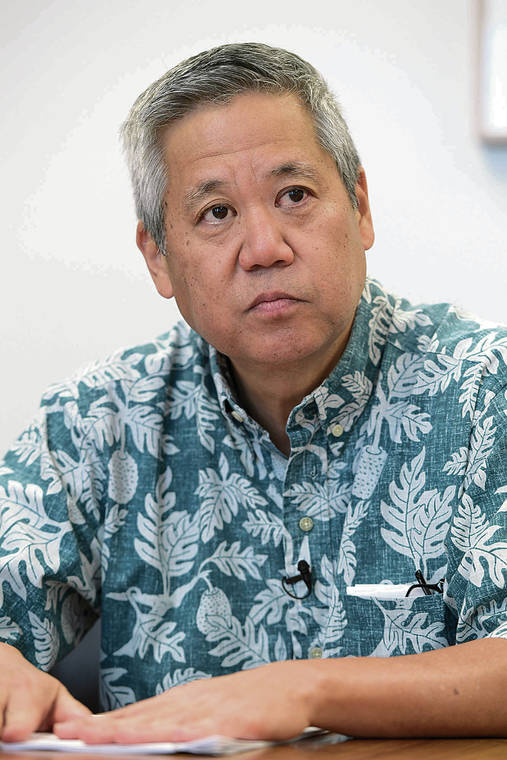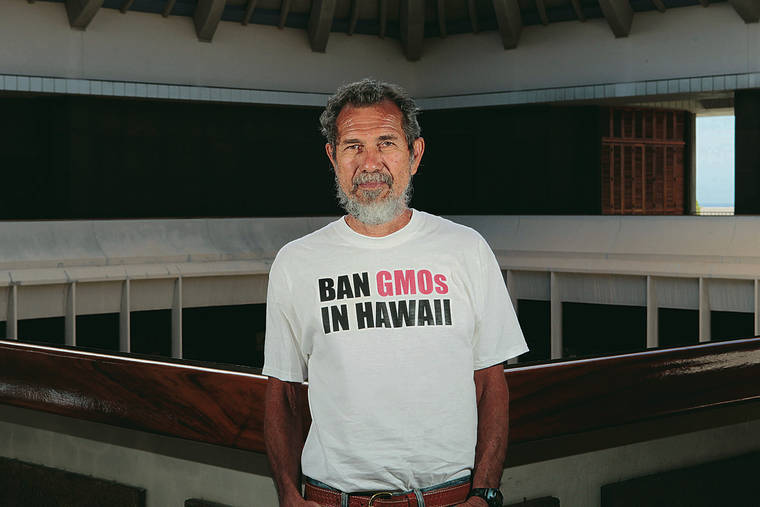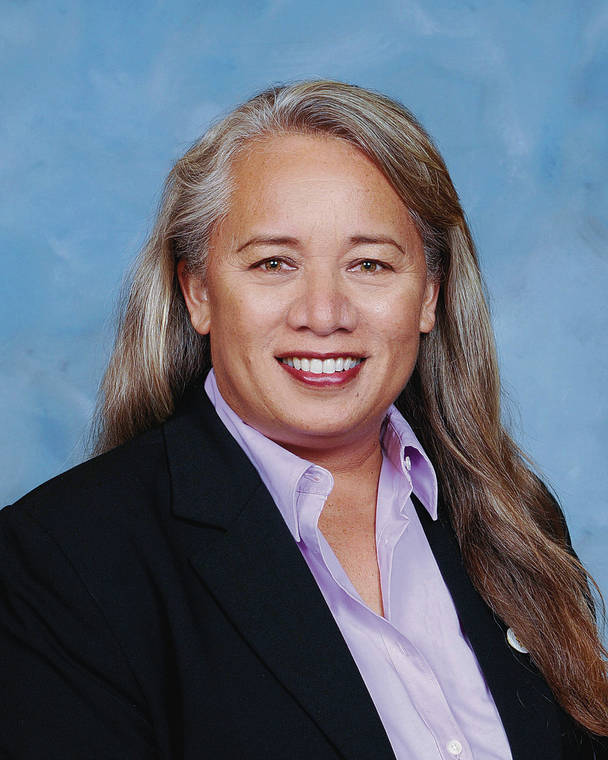State Legislature: Challenge to House speaker highlights legislative races

STAR-ADVERTISER
Scott Saiki

COURTESY PHOTO
Kim Coco Iwamoto

STAR-ADVERTISER
Walter Ritte

COURTESY PHOTO
Lynn DeCoite




A challenge to House Speaker Scott Saiki in District 26 — which includes McCully, Kakaako and downtown — was among the most closely watched races in the primary, which overall is expected to bring to the Legislature some younger progressives.
Saiki, a centrist who has served in the House since 1994 and one of the most powerful Democrats in the state, is facing a challenge from former state Board of Education member and progressive Kim Coco Iwamoto.
In the second round of election results, Saiki had 3,225 votes to Iwamoto’s 2,986 — a difference of 239.
Only the two Democrats are running in the primary, meaning it’s winner take all.
Iwamoto said as the state begins to experience the long-term hardships of the pandemic and recession, the Legislature should focus on housing and health care. She said that if the state gets to the point where government worker salaries must be cut, “start with those that make wages that are five times higher than the minimum.” Iwamoto said the speaker of the House makes $70,000 for six months’ work.
The Hawaii State Teachers Association was among those endorsing Saiki.
Don't miss out on what's happening!
Stay in touch with breaking news, as it happens, conveniently in your email inbox. It's FREE!
“We don’t often see a really well-financed, well-known progressive challenge to one of the most important persons of the Legislature,” political analyst Colin Moore said. “The senior leadership usually doesn’t have to face challenges like that. So I think how she does will be interesting.”
Hawaii voters mailed in ballots in a coronavirus- impacted primary for 13 state Senate races and 51 representative districts.
In at least two key races, incumbents were trailing challengers.
In House District 22, which includes Waikiki and Ala Moana, incumbent Democrat Tom Brower, 56, was facing Adrian Tam, 27, who “ran a really strong campaign,” Moore said.
Brower, who lists homelessness as his top priority, trailed with 1,735 votes to Tam’s 1,833. Nicholas Ochs ran as a Republican. Brower gained publicity in 2013 for taking to the streets with a sledgehammer to disable the wheels of shopping carts taken by the homeless.
A former Senate staffer, Tam said his plan to diversify the economy as a result of the pandemic includes looking at green technology, including land reclamation, hydropower and “green architecture.”
In House District 30, incumbent Romy Cachola had a challenge — again — in the form of Ernesto “Sonny” Ganaden for the Democratic nod for the Kalihi and Halawa seat.
“Romy Cachola has been in ties or virtual ties at least twice before and last time he was in a near-tie with the guy who’s running against him this time,” said former Honolulu Advertiser political writer Jerry Burris.
Ganaden had 1,479 votes to Cachola’s 831 votes. Tess Quilingking, running as a Republican, had 210 votes to Pualani Azinga’s 196.
The political analyst Moore noted several young progressive Democrats — Becky Gardner, Jackson Sayama and Derek Turbin — are running for the nomination in House District 20.
The District 20 seat, which includes St. Louis Heights, Palolo and Kaimuki, was held by Calvin Say for more than four decades, so the contenders do not need to stare down an incumbent to win.
“I do think that we see kind of some real well- qualified professional young candidates this round,” Moore said.
Sayama led with 2,362 votes, followed by Turbin (2,177), Gardner (1,819) amd Jay Ishibashi (906). Republican candidate Julia Allen will move to the general election.
Cynthia Thielen, 86, one of five Republicans in the House, announced in October that she would not seek reelection in District 50 representing Kailua and Kaneohe Bay after three decades of service.
The Democratic candidates were Patrick Branco with 2,842 votes and Micah Pregitzer with 2,446. Kanani Souza ran as a Republican.
A large field of seven ran for Chris Lee’s House District 51 seat, which covers Kailua and Waimanalo.
Lisa Marten topped Coby Chock, Scott Grimmer and Alan Akao on the Democratic side. Kukana Kama- Toth emerged ahead of Doni Chong for the Republican nod. Erik Ho ran as part of the Aloha Aina party.
Molokai political activist Walter Ritte, 75, ran in state House District 13 as a Democrat to represent Lanai, Molokai, Paia and Hana against incumbent Lynn DeCoite, 50, a Molokai rancher and farmer.
Ritte was arrested last year while protesting the construction of the $1.4 billion Thirty Meter Telescope on Mauna Kea. Previously, he was part of the movement to stop U.S. military bombing practice on Kahoolawe.
DeCoite had 2,760 votes to Ritte’s 2,731 — a difference of 29 votes.
Ritte described his qualifications as being a “community organizer, protector of the environment and Aloha Aina Warrior.”
Asked in a candidate questionnaire how she would diversify a pandemic- wracked Hawaii economy, DeCoite said she would turn toward agritourism.
“Everyone is capable of growing food, build cooperatives, hui up together to utilize each other’s strengths” and look to market what is grown alongside tourism, she said.
Political analyst Moore said he had “no idea” how to call that race.
“I think Lynn DeCoite is a pretty good legislator, but Walter Ritte is a legend,” Moore said.
In state Senate races, in 2016 former Honolulu City Councilman and Democrat Stanley Chang bested Republican Sam Slom for the seat representing Hawaii Kai, Kahala and Diamond Head.
The general election will result in a rematch between Slom, 78, who railed against tax increases and government spending and was in office for five terms, and Chang, a Harvard Law graduate. Both were uncontested in the primary.
“The fact that Stanley Chang got elected last time shows that they’ve shifted away from Sam,” Burris said.
Because of COVID-19, “there’s just no energy or attention or space to think about the election,” Moore said, and it’s been really hard for challengers to campaign.
Most campaigning for the primary has been on social media with “a little bit of sign-waving, but even that’s hard to do,” he said.
But it’s been “really hard to do the kind of traditional shoe-leather campaign that you want to do if you want to get your name out there,” Moore said.

 Stay updated on Hawaii and national elections coverage
Stay updated on Hawaii and national elections coverage




